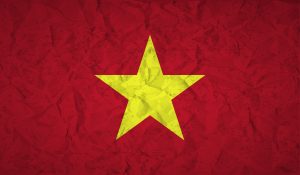Vietnam’s National Assembly will reportedly hold an extraordinary meeting this week, during which it is expected to confirm the appointment of a new president after the unprecedented mid-term resignation of Nguyen Xuan Phuc last month.
In a report yesterday by Reuters, which cited officials and diplomats with knowledge of the situation, the session will formalize the appointment of Vo Van Thuong, 52, currently the youngest member of the Politburo of the ruling Communist Party of Vietnam (CPV), the country’s highest decision-making body.
With the next regular session of parliament not scheduled until May, the National Assembly is expected to hold an extraordinary meeting tomorrow, according to Vietnamese state media.
Indeed, Thuong’s likely appointment has been something of an open secret since mid-February when, according to several observers, the Politburo reached a consensus on Truong’s appointment and other key personnel changes. If appointed as expected, Thuong will serve until the present term expires in 2026.
In mid-January, Vietnam’s National Assembly officially approved Phuc’s resignation, an unprecedented sign of political upheaval at the heights of Vietnamese politics. This came after the CPV censured him for “violations and wrongdoings” committed by officials during his time in office. Specifically, this involved a pair of pandemic-era corruption scandals, one involving COVID-19 test kits and the other involving repatriation flights for Vietnamese citizens stranded abroad.
This high-level personnel purge marked something of a culmination of CPV chief Nguyen Phu Trong’s “burning furnace” anti-corruption drive, which has cut a swathe through the Vietnamese party-state in recent years. Phuc’s resignation was preceded by those of two of the country’s four deputy prime ministers on January 5, including Pham Binh Minh, who served as foreign minister from 2021 to 2021. This follows the expulsion from the party, and in some cases the arrest, of a raft of other senior officials over the past five years.
Alex Vuving of the Daniel K. Inouye Asia-Pacific Center for Security Studies in Hawai’i reported last week that the Politburo meeting that greenlit Thuong’s appointment also approved Tran Luu Quang to replace former Foreign Minister Minh as standing deputy prime minister and to take his vacated position on the Politburo. A previous plan to force Prime Minister Pham Minh Chinh into “retirement” has also apparently been put on hold, Vuving wrote, suggesting that Trong’s anti-corruption purge may have reached something of a natural conclusion.
That said, Thuong is very much on board with Trong’s cleansing agenda. The current executive secretary of the CPV, he concurrently serves as deputy head of the Central Steering Committee on Prevention and Control of Corruption and Negative Phenomena. In a recent briefing, Carl Thayer of the Australian Defence Force Academy in Canberra, a longtime watcher of Vietnamese politics, described Thuong as a “‘died [sic] in the wool’ party apparatchik and a trusted member of Secretary General Trong’s inner circle.”
Thayer suggested that given Thuong’s relative youth and close relationship with Trong, he could well rise high in the CPV firmament before the 14th CPV Party Congress in 2026. “If he excels in his presumptive new role as state president, he would be an obvious candidate to replace Trong as the next party leader,” Thayer wrote.

































